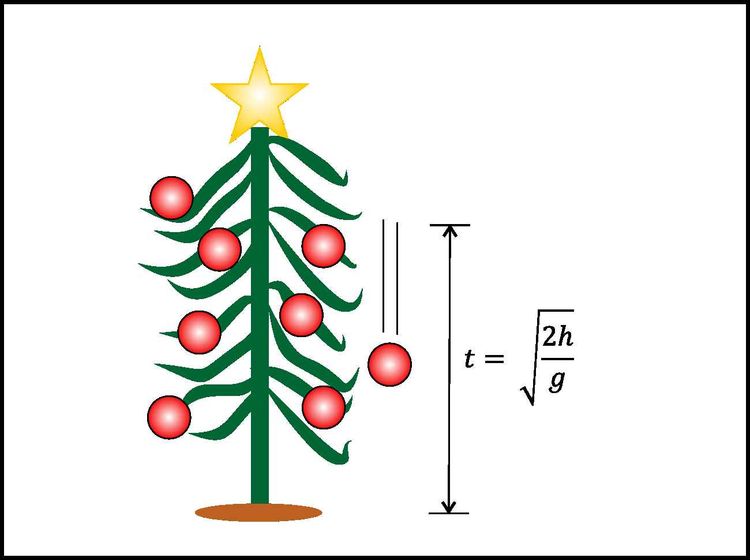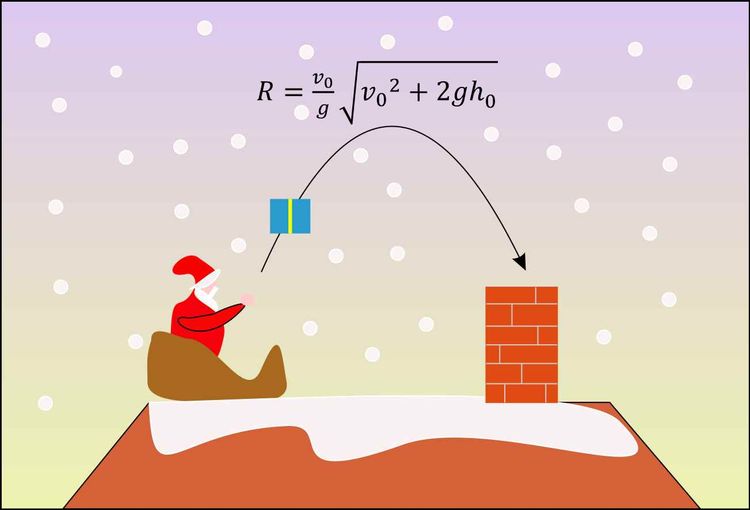Nowadays the range of Advent calendars available in the market is very large: from the typical chocolate to beer, from children's toys to sex toys for adults. The idea behind the Advent calendar is to make the time before Christmas to go by faster and to prepare us with joy for Christmas Eve. So how about an Advent calendar with physics?
The Physics Advent Calendar, called PiA – Physics in Advent –, is a bilingual (German-English) project offered in cooperation between the Georg-August-University Göttingen, the Wilhelm and Else Heraeus-Stiftung, the German Physical Society (DPG), the Austrian Physical Society (ÖPG), the Swiss Physical Society (SPS) and the European Physical Society (EPS) since 2015. The project originated from the idea to inspire young people for mathematics, informatics, natural sciences and technic. Starting with the 1st of December, 24 simple physics experiments to redo at home will be presented daily and a question will be prompted.

How exactly does the Physics Advent Calendar work?
PiA is aimed at a very broad audience: pupils from the 5th to the 10th grade (ages 11 to 16), school classes, entire schools, but also parents, students, teachers and anyone interested in physics. You can participate individually or in self-organized groups. Registration started on November 1st. After that you can start building-up the experiments and answering the corresponding questions that are shown on a Youtube video daily from the 1st to the 24th of December on the PiA website. On the 25th you can then check your total achieved score. Besides the fun and the joy of learning, you can also win something.
The prices change according to the category (school classes or individuals). Each year, individuals can win a main prize, experiment kits, books and a number of individual prizes such as iPods, tickets for planetariums and technology museums in Germany, CERN articles, and much more. The main prize 2018 is a trip to Dallas in the USA to watch the basketball games with Dirk Nowitzki's team. For school classes there are either tickets for technical museums and interactive science centres, such as the Welios in Upper Austria, or guided tours and excursions to research institutions such as the CERN in Geneva, Switzerland.

What kind of experiments and questions are asked at PiA?
The experiments and questions in the PiA deal with general tasks that anyone with little logical thinking and basic knowledge of physics can answer. These are physical questions that have to do with the everyday life, such as: why does a spoon seem bent when immersed in water? This phenomenon can be explained by the difference in refractive indices in air and water and Snell's law of refraction. The refractive index is an optical property of a material that indicates how fast light moves inside a material. Since the fastest way from the tip of the spoon to the eye is not the most direct due to different light velocities in the water and light, the spoon seems to be bent.
Another example is the sound of a spoon. Is the sound of a teaspoon when hitting a table, the same as that of a tablespoon? The answer to this is: No. When the spoon is struck, it is put into vibration. The teaspoon will vibrate with a higher frequency than the tablespoon. The higher frequency produces a higher tone, or sound. Or what happens when heating an ice cube on a pan? This demonstrates the phenomena of phase transition in matter as the ice slowly melts to liquid water and finally boils away to the vapour phase.
Teaser video for the PiA 2018.
Why participate in PiA?
If the desire to learn and the prices should not be motivation enough, parts of different chain reactions are shown before each task and solution videos, which can be rebuilt at home by means of dominoes and various items that can be found in any household.
By participating in PiA, not only will the time until Christmas go by faster, but you can learn a lot about physics in our everyday life. This is the most important of all, by participating in PiA, as we hope that people become aware (and we just can't emphasize this enough, like author Frank Schätzing in the teaser) that physics is everywhere. Even at Christmas.(Andrea Navarro-Quezada, Rajdeep Adhikari, 14.11.2018)
Article in German
Link
More articles in this blog